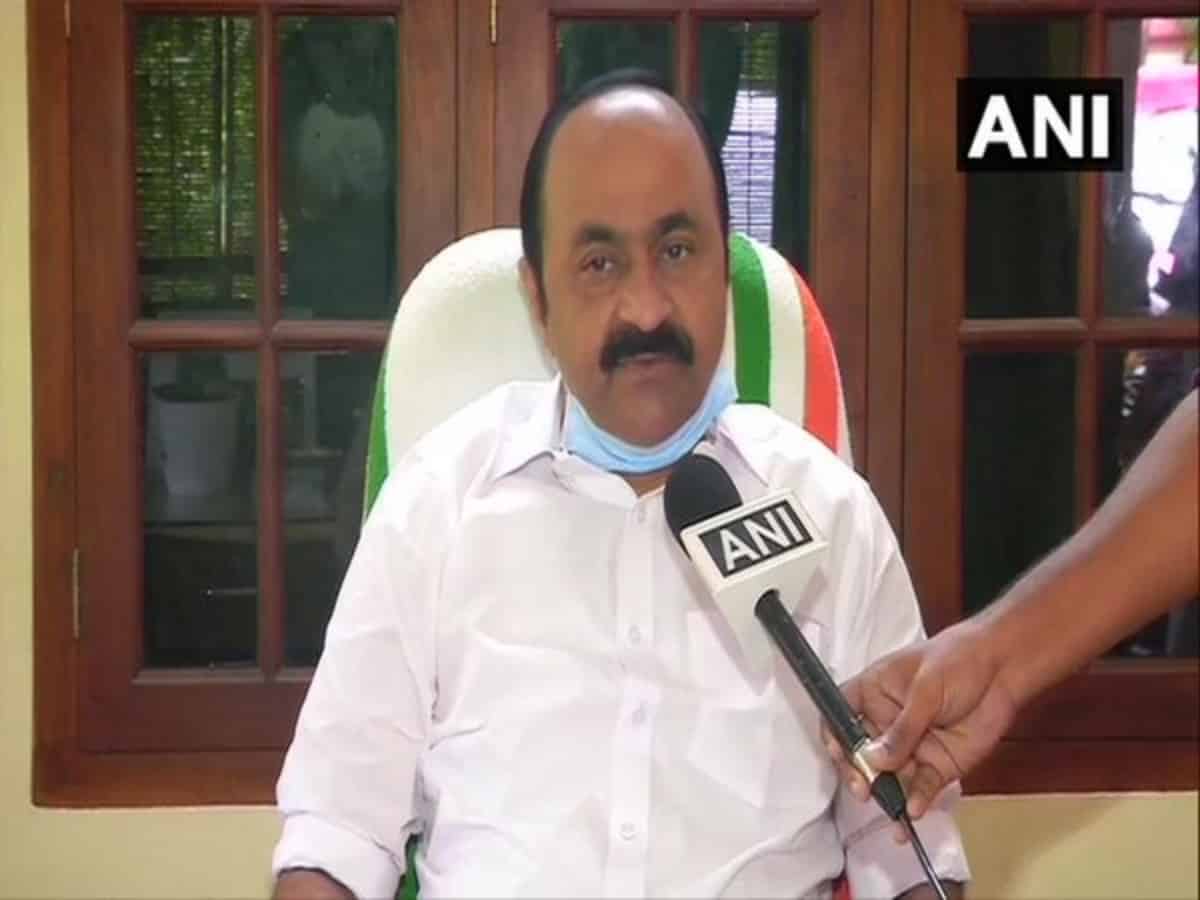
Pathanamthitta: The Congress-led UDF opposition on Saturday attacked the ruling LDF in the state ahead of the Lok Sabha polls, after the Supreme Court decided not to grant an interim injunction to Kerala, while referring the state’s suit against the cap on its borrowing limit to a larger bench.
Attacking the Left front, Leader of Opposition in the State Assembly V D Satheesan alleged that it was the financial mismanagement of the previous LDF administration from 2016 to 2021 that pushed Kerala into its “present economic crisis”.
The opposition leader alleged that the mismanagement occurred when Thomas Isaac, the LDF’s candidate from Pathanamthitta Lok Sabha constituency, was the state finance minister.
Satheesan further claimed that the present LDF administration has not done anything to extricate the state from the “present financial predicament”.
He also alleged that the Left administration has not only continued with its financial mismanagement, it has also failed to carry out tax collection properly, curb unnecessary expenditures and prevent corruption.
Speaking to reporters here as part of the UDF election campaign, the opposition leader said while the state government claimed, during its Nava Kerala Sadas outreach programme, that it has to get more than Rs 56,000 crore from the Centre, this argument was not made before the apex court.
Instead, the state government only told the Supreme Court that the cap on its borrowing limits should be removed.
“Imagine what would happen if the apex court were to remove the ceiling on their borrowing limits? They (state government) will financially ruin the state. Kerala is already in extreme financial distress. A lot of projects and social welfare schemes have been stopped or put on hold,” he alleged.
On Monday, April 1, the apex court referred to a five-judge Constitution bench the suit filed by the Kerala government raising the issue of ceiling on its net borrowing.
The Supreme Court had, however, refused to grant any interim injunction to Kerala saying the state has secured “substantial relief” during the pendency of the interim application.
The top court also said that it was “inclined to accept the argument of the Union that where there is over-utilisation of the borrowing limit in the previous year, to the extent of over-borrowing, deductions are permissible in the succeeding year, even beyond the award period of the 14th Finance Commission”.
“This is, however, a matter which will have to be finally decided in the suit,” it had added.
The apex court had also said that even if it was assumed that the financial hardship of the state was partly a result of the Centre’s regulations, “during the course of hearing this interim application, the concern has been assuaged by the defendant — Union of India — to some extent, so as to bail out the plaintiff — the state (of Kerala) — from the current crisis”.
The court’s decision was welcomed by Kerala Finance Minister K N Balagopal yesterday, saying it was an important decision for the state and the nation.
In its suit, Kerala has accused the Centre of interfering in the exercise of its “exclusive, autonomous and plenary powers” to regulate the state’s finances by imposing a cap on borrowing.
It has said that the Constitution bestows fiscal autonomy upon states to regulate their finances under various articles, and that the borrowing limits or the extent of such borrowings are regulated by state legislation.
While referring the matter to a Constitution bench, the apex court referred to Article 293 of the Constitution, which deals with borrowing by states, and had said this provision has so far not been subject to any authoritative interpretation by it.



